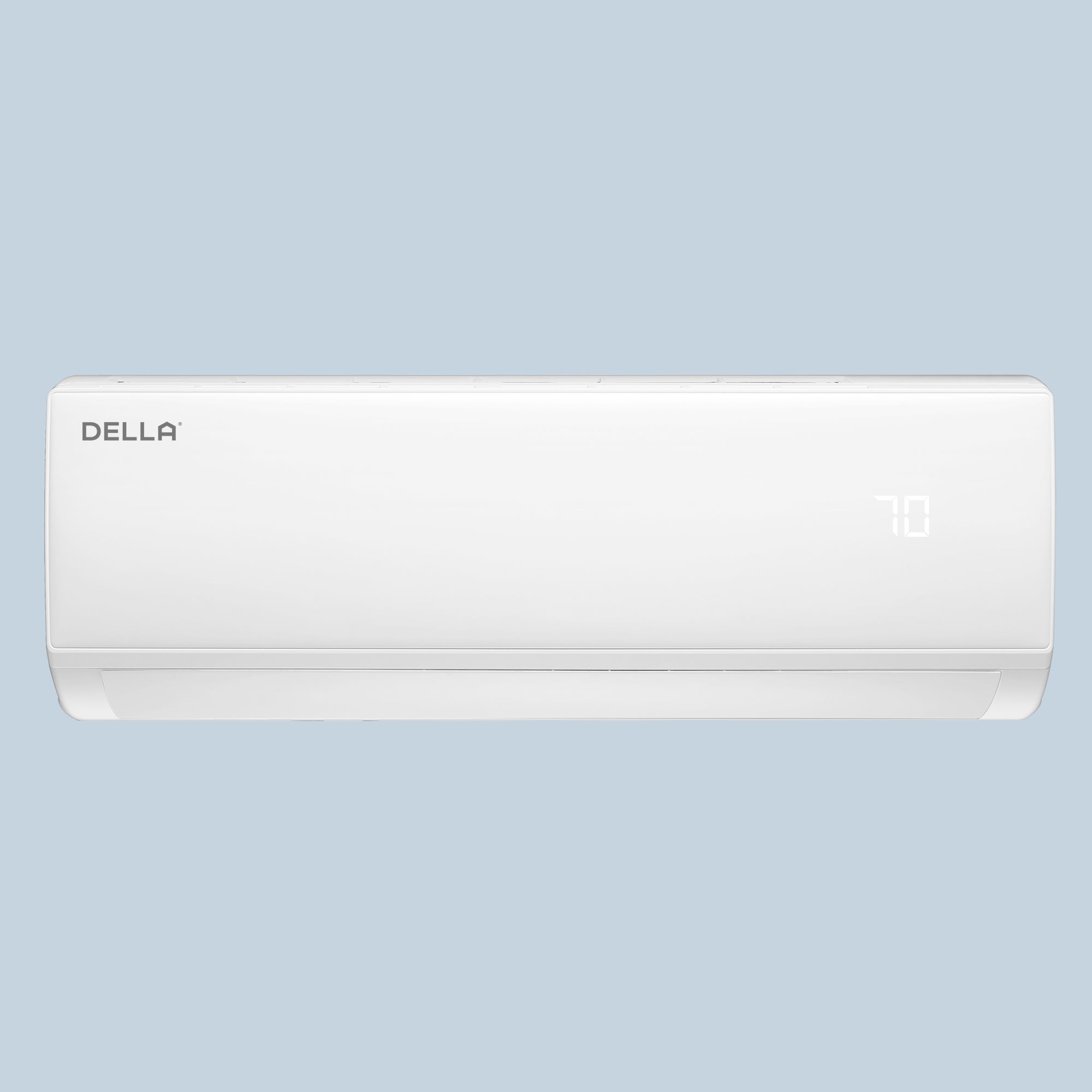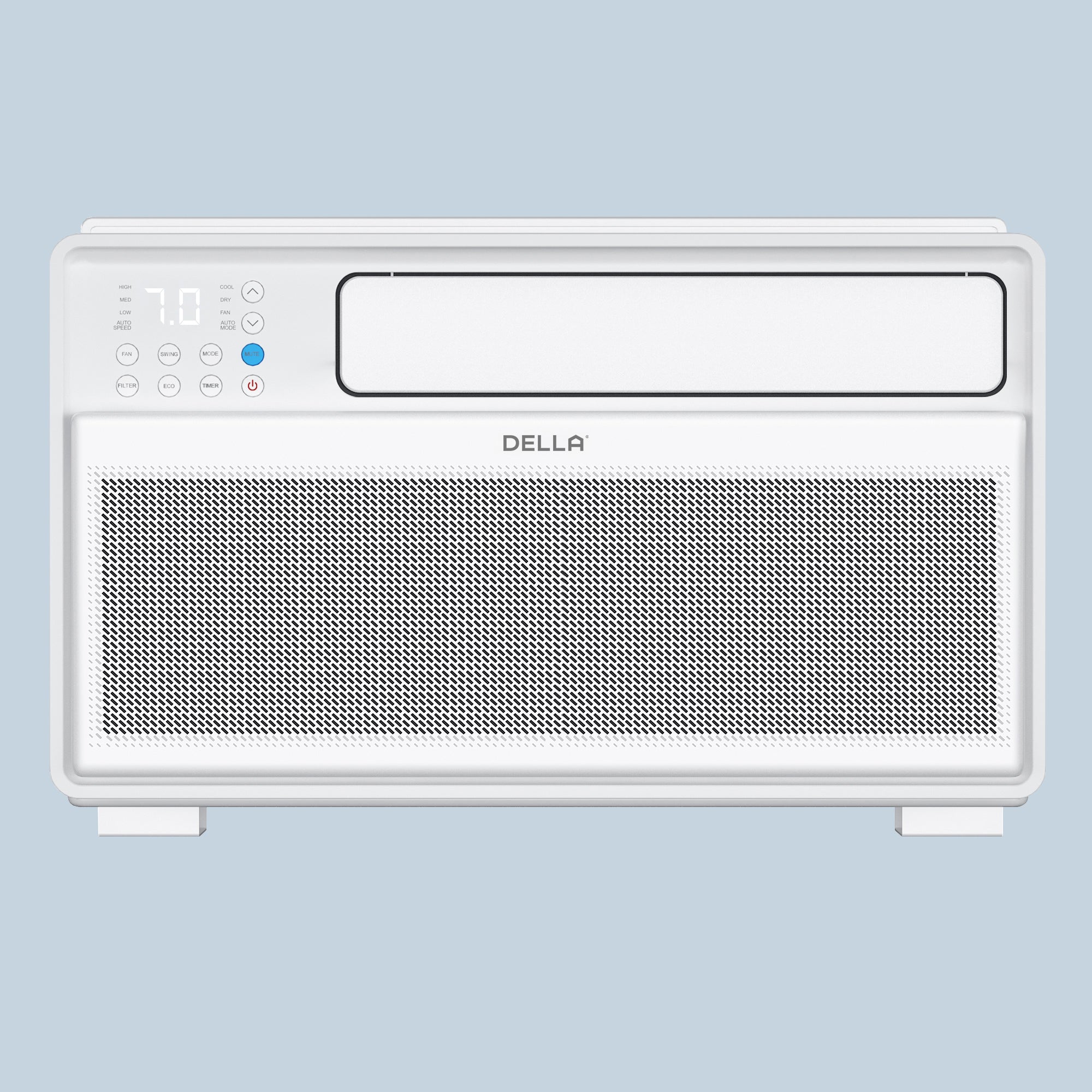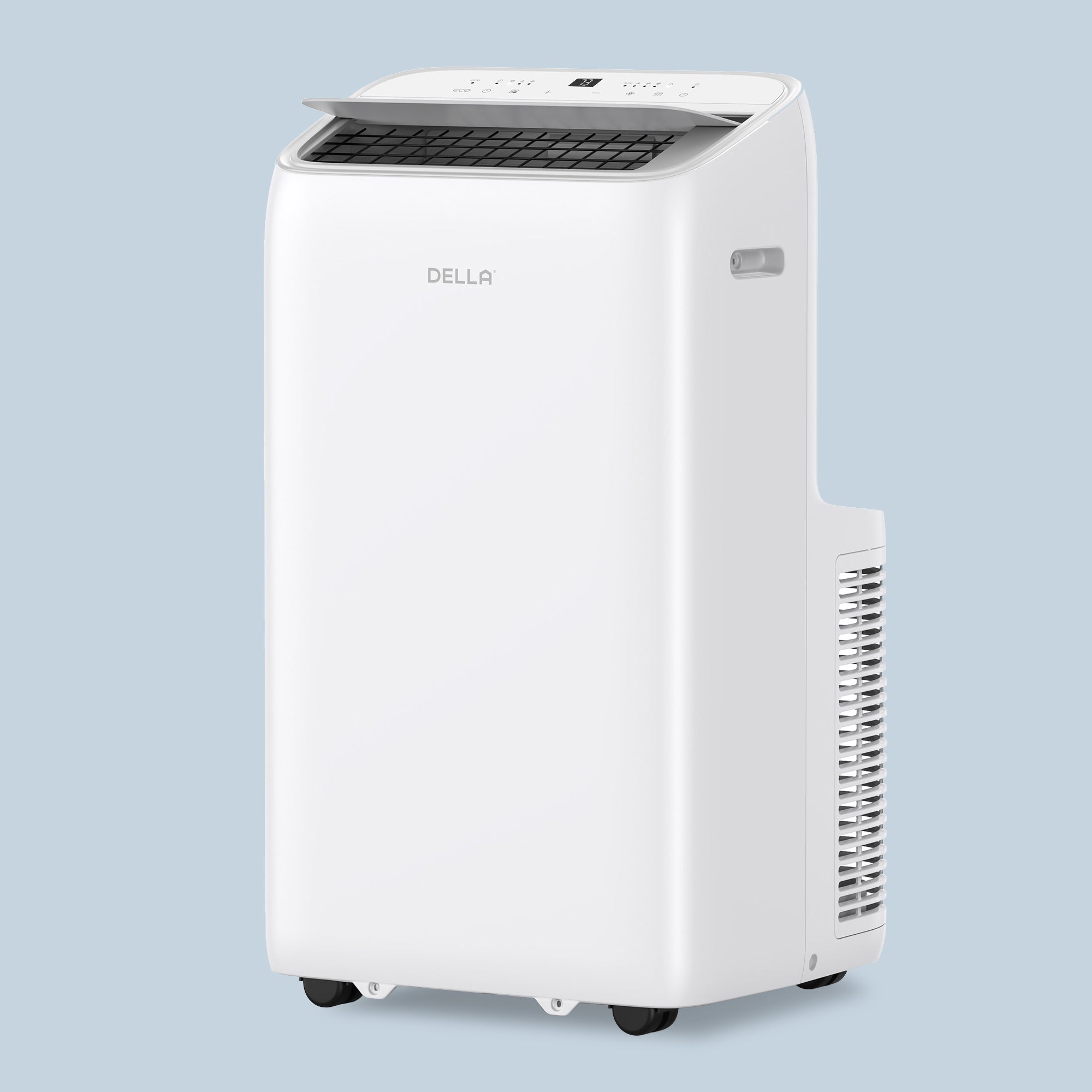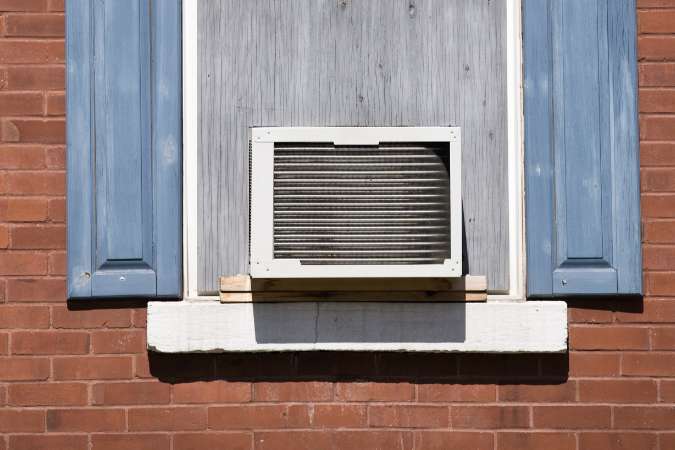The average power consumption of a window air conditioner ranges from 500 watts for smaller units to around 1,500 watts for larger models. In this guide, you'll learn how many watts window air conditioners use, how different factors impact your AC's energy use, and how to calculate its wattage accurately.
How Many Watts Does a Small Window Air Conditioner Use?
A small window AC, typically ranging from 5,000 to 6,000 BTUs, is designed for rooms up to 150-250 square feet. On average, these units consume between 500 and 700 watts per hour, making them a more energy-efficient option for compact spaces.
How Many Watts Does a Medium Window Air Conditioner Use?
A medium window air conditioner, typically ranging from 7,000 to 10,000 BTUs, is suitable for rooms between 250 and 450 square feet. These units generally consume around 900 to 1,200 watts per hour. With more cooling power than small units, they provide effective temperature control for larger spaces like living rooms or small apartments without significantly increasing energy costs.
How Many Watts Does a Large Window Air Conditioner Use?
A large window air conditioner, typically rated between 12,000 and 18,000 BTUs, is designed to cool rooms from 450 to 700 square feet. On average, these units consume between 1,500 and 2,000 watts per hour. These units are best for larger areas like open-plan living spaces, but due to their higher wattage, they also draw more power, which can impact your overall electricity usage.
How to Calculate the Wattage of Your Window AC?
There are two primary methods for calculating the wattage of your window air conditioner: using the BTU and EER formula or converting BTUs directly into watt hours. Let’s explore both approaches.
Method 1: Using the BTU and EER Formula
One common way to calculate your window AC’s wattage is by dividing the BTU rating by the Energy Efficiency Ratio (EER). The formula is:
Wattage = BTUs ÷ EER
For example, if your AC is rated at 10,000 BTUs with an EER of 10, the calculation would be:
Wattage = 10,000 BTUs ÷ 10 EER = 1,000 watts
This gives you a fairly accurate estimate of how much power the AC consumes per hour of operation.
Method 2: Converting BTUs to Watt Hours
Another method involves converting BTUs directly into watt hours using the following conversion factor:
1 BTU = 0.29307107018321 watt hours
To calculate, simply multiply the BTU rating of your AC unit by 0.293 to get the watt hours. For example, if your unit has a rating of 10,000 BTUs:
Wattage = 10,000 BTUs × 0.293 = 2,930.71 watt hours
This method gives you the total energy used in watt hours rather than dividing it by an efficiency ratio like in Method 1.
Why Do Two Methods Get Different Results?
The first method, using the EER formula, factors in the efficiency of your air conditioner, making it a more precise measurement of your unit’s actual energy consumption during normal operation.
The second method, converting BTUs to watt hours, offers a straightforward calculation but does not account for efficiency, which represents the maximum potential energy consumption. When your equipment's energy consumption is extremely low, its actual energy consumption may be closer to the results calculated by the second method.

Energy Consumption of Different BTU Window Air Conditioners
Method 1: Using the EER Formula (EER = 10.2)
-
A 5,000 BTU window air conditioner consumes 490.2 watts.
-
A 6,000 BTU window air conditioner draws 588.2 watts.
-
An 8,000 BTU window AC uses 784.3 watts.
-
A 10,000 BTU window air conditioner runs on 980.4 watts.
-
A 12,000 BTU unit consumes 1,176.5 watts.
-
A 14,000 BTU window air conditioner uses 1,372.5 watts.
-
An 18,000 BTU unit operates on 1,764.7 watts.
Method 2: Maximum Power Consumption (Converting BTUs to Watt Hours)
-
A 5,000 BTU window air conditioner has a maximum possible power consumption of 1,465 watts.
-
A 6,000 BTU unit can use up to 1,758 watts.
-
An 8,000 BTU window AC may consume as much as 2,344 watts.
-
A 10,000 BTU air conditioner draws a maximum of 2,930 watts.
-
A 12,000 BTU window air conditioner can consume 3,516 watts at peak power.
-
A 14,000 BTU window air conditioner can reach 4,102 watts.
-
An 18,000 BTU air conditioner may require up to 5,274 watts.
Window AC Wattage Chart
| BTU Rating | EER Method (Watts) | Max Consumption (Watts) |
| 5,000 BTU | 490.2 watts | 1,465 watts |
| 6,000 BTU | 588.2 watts | 1,758 watts |
| 8,000 BTU | 784.3 watts | 2,344 watts |
| 10,000 BTU | 980.4 watts | 2,930 watts |
| 12,000 BTU | 1,176.5 watts | 3,516 watts |
| 14,000 BTU | 1,372.5 watts | 4,102 watts |
| 18,000 BTU | 1,764.7 watts | 5,274 watts |
Factors That Affect the Power Usage of Window Air Conditioners
Several key factors influence how much power your window air conditioner consumes:
-
Room Size: Larger rooms require more cooling, which increases energy usage.
-
Insulation: Poor insulation makes your AC work harder and use more power.
-
Outdoor Temperature: Hotter weather leads to higher energy consumption.
-
Usage Habits: Longer run times and lower temperature settings increase wattage.
-
Energy Efficiency: Units with higher EER ratings use less energy.
-
Maintenance: Clean filters and coils improve efficiency and reduce power consumption.

Tips to Reduce Energy Bills for Window AC Units
Here are some practical tips to help you save on your energy bills while using a window air conditioner:
Set a Reasonable Temperature
Keeping your AC at 75-78°F offers comfort while using less energy.
Use a Programmable Timer
Set your AC to run only when you're home to avoid unnecessary use.
Improve Insulation
Properly insulate windows and doors to keep the cool air in and reduce the AC’s workload.
Regular Maintenance
Clean or replace filters regularly to maintain efficiency and lower energy consumption.
Close Curtains and Blinds
Blocking sunlight reduces the room’s temperature, helping the AC cool more effectively.
Use Fans
Ceiling or standing fans can help circulate cool air, allowing you to set the AC at a higher temperature.
Conclusion
Window air conditioners vary in power consumption, but understanding how many watts your unit uses and implementing energy-saving practices can significantly reduce your energy costs. To keep your home cool while saving on your bills, explore Della’s energy-efficient window air conditioners during their latest air conditioner sale now!
Read More:
Best 8000 BTU Window Air Conditioner in 2024
How Many BTU to a Ton? Your Guide to the Right Air Conditionerer








LEAVE A COMMENT
All comments are moderated before being published.
This site is protected by hCaptcha and the hCaptcha Privacy Policy and Terms of Service apply.